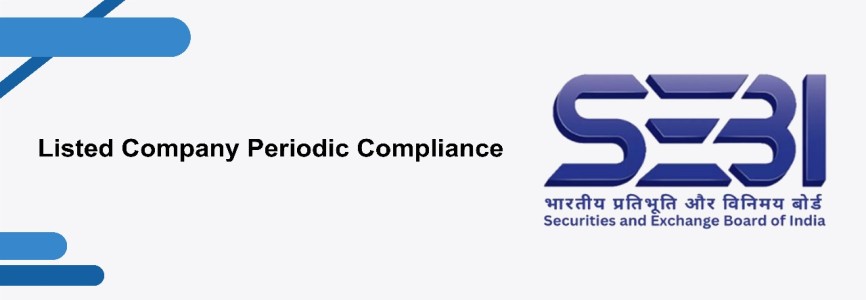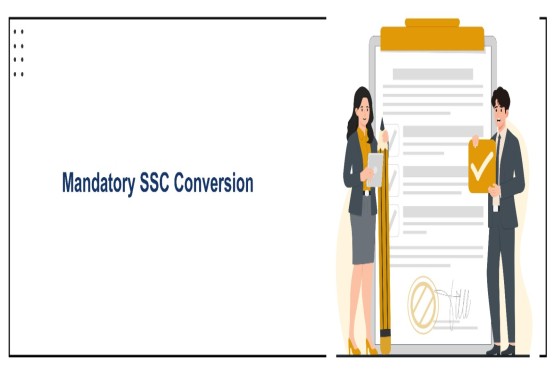In India, Listed companies are required to maintain the highest standards of transparency, governance, and accountability to safeguard the interests of millions of investors who entrust their capital to them. To ensure this, the Securities and Exchange Board of India (SEBI) has established a detailed compliance framework under the SEBI (Listing Obligations and Disclosure Requirements) Regulations, 2015 (SEBI LODR).
These regulations mandate periodic disclosures as:
-
quarterly,
-
half-yearly, and
-
annual
Which covers financial performance, governance practices, investor grievance redressal, shareholding patterns, related party transactions, and more. Such structured reporting not only strengthens investor confidence but also enhances the credibility of India’s capital markets.
To simplify processes and avoid duplication, SEBI has also enabled integrated filings for specific regulations across major stock exchanges like BSE and NSE. This ensures uniformity, efficiency, and greater ease of compliance for listed entities.
What is a Listed Company?
A listed company is a company whose shares are officially listed and traded on a recognized stock exchange such as the BSE (Bombay Stock Exchange) or NSE (National Stock Exchange). To obtain and maintain this status, the company must comply with the SEBI listing requirements of the exchange, which typically include conditions such as a minimum paid-up capital, profitability or earnings criteria, public shareholding norms, and disclosure obligations.
Being listed allows a company to raise funds from the public by offering its shares, while at the same time it imposes stricter governance and compliance responsibilities to ensure transparency, investor protection, and market integrity.
SEBI Quarterly Compliances
SEBI Regulation 13(3): Investor Complaints
Under Regulation 13(3) of SEBI (LODR) Regulations, 2015, every listed entity is required to submit a quarterly statement to the recognized stock exchange(s) regarding the status of investor complaints. The disclosure must be filed within 21 days from the end of each quarter and should provide the following details:
-
Number of investor complaints pending at the beginning of the quarter.
-
Complaints received during the quarter.
-
Complaints disposed of during the quarter.
-
Complaints remaining unresolved at the end of the quarter.
This requirement allows the transparency in the grievance redressal mechanism of listed companies and provides investors with confidence that their concerns are being monitored and addressed. Non-compliance with this regulation can attract penalties and also adversely affect the reputation of the listed entity in the eyes of shareholders and regulators.
SEBI Regulation 27(2): Corporate Governance Report
Under Regulation 27(2) of SEBI (LODR) Regulations, 2015, every listed company is required to submit a quarterly corporate governance compliance report to the recognized stock exchanges within 21 days from the end of each quarter. However, this requirement does not apply to all listed entities. Companies with a paid-up equity share capital of Rs.10 crore or less and a net worth of Rs.25 crore or less as on the last day of the previous financial year are exempt from this filing, unless they cross the prescribed threshold later, in which case compliance becomes mandatory within six months. Once applicable, the provisions remain in force until the company’s equity share capital or net worth remains below the threshold for three consecutive financial years. Similarly, entities that have listed their securities exclusively on the SME Exchange are also exempt. For other listed entities that are not structured as companies (such as body corporates governed by separate statutes), the provisions of corporate governance apply only to the extent that they do not conflict with their governing laws or regulatory guidelines. The primary objective of this compliance is to ensure transparency and accountability in the functioning of the board of directors, committees, and governance structures, thereby strengthening investor confidence and enforcing higher standards of corporate governance.
SEBI Regulation 31: Shareholding Pattern
Under Regulation 31 of SEBI (LODR) Regulations, 2015, every listed company is required to submit to the stock exchange(s) a statement of shareholding pattern, showing the holding of securities for each class of securities, in the format prescribed by SEBI. This disclosure must be made:
-
one day prior to the listing of its securities on the stock exchange(s);
-
on a quarterly basis, within 21 days from the end of each quarter; and
-
within 10 days of any capital restructuring that leads to a change of more than 2% of the total paid-up share capital.
For companies whose securities are listed on the SME Exchange, the statement of shareholding pattern is required to be submitted only on a half-yearly basis, within 21 days from the end of each half year.
SEBI Regulation 33: Financial Results
Under Regulation 33 of SEBI (LODR) Regulations, 2015, listed companies are required to submit their standalone financial results to the stock exchanges within specific timelines. The quarterly and year-to-date results, except for the last quarter, must be filed within 45 days of the quarter’s end along with a Limited Review Report or Audit Report, as applicable. For the entire financial year, the company must submit its annual audited standalone financial results within 60 days of year-end, accompanied by the audit report and either a Statement on the Impact of Audit Qualifications (in case of modified opinions) or a declaration (in case of unmodified opinions). If the listed company has subsidiaries, it must also submit the annual audited consolidated financial results in addition to standalone results. In such cases, the consolidated results must also be supported with the audit report and audit qualification statement, where applicable. Further, in the case of entities listed on the SME Exchange, references to “quarterly/quarter” are to be understood as “half-yearly/half year,” requiring them to file results on a half-yearly basis instead of quarterly.
SEBI Regulation 32: Statement of Deviation or Variation
Under Regulation 32(1) of SEBI (LODR) Regulations, 2015, every listed company that has raised funds through public issues, rights issues, preferential allotments, or similar modes is required to submit a quarterly statement of deviation or variation in the use of such funds compared to the stated objectives in the offer document. This statement must be filed with the stock exchanges within 45 days from the end of each quarter and within 60 days from the end of the last quarter of the financial year. The disclosures, usually due by 14th August, 14th November, 14th February, and 30th May, ensure transparency in fund utilization and help investors track whether the capital raised is being deployed for the intended purposes.
SEBI Half-Yearly Compliances
SEBI Regulation 23(9): Related Party Transactions Disclosure
As per Regulation 23(9) of SEBI (LODR) Regulations, 2015, listed entities are required to make disclosures of related party transactions (RPTs) in the prescribed format. These disclosures must be submitted to the stock exchanges on the same date as the publication of the standalone and consolidated financial results, ensuring transparency in dealings with promoters, directors, subsidiaries, associates, or any other related parties.
Annual/Yearly Compliances
SEBI Regulation 24A: Secretarial Compliance Report
Under Regulation 24A of SEBI (LODR) Regulations, 2015, every listed company is required to submit a Secretarial Compliance Report to the stock exchanges within 60 days from the end of the financial year. This report, certified by a practicing company secretary, confirms compliance with all SEBI regulations, circulars, and guidelines, thereby strengthening regulatory oversight and corporate governance.
SEBI Regulation 34: Annual Report Submission
As per Regulation 34(1) of SEBI (LODR) Regulations, 2015, every listed company must submit its Annual Report to the stock exchanges on or before the date it is dispatched to the shareholders. This ensures that investors and regulatory authorities receive timely access to the company’s financial statements, corporate governance report, and other key disclosures.
SEBI Annual Secretarial Audit Report (MR-3)
In terms of Section 204 of the Companies Act, 2013 and LODR, every listed company is required to obtain a Secretarial Audit Report (Form MR-3) from a practicing company secretary. This forms part of the Annual Report, ensuring a comprehensive compliance check.
Final Thoughts
The periodic compliance requirements under SEBI LODR Regulations, 2015 serve as a strong foundation for enhancing corporate governance and investor confidence in listed companies. Regular disclosures relating to financial performance, governance practices, investor grievance handling, and secretarial reporting ensure that companies remain transparent and accountable to the market. While the framework demands rigorous adherence, it ultimately benefits listed entities by building credibility, protecting shareholder interests, and supporting sustainable growth. In a dynamic capital market, timely and accurate compliance is not only a legal necessity but also a strategic tool for strengthening a company’s reputation and fostering long-term trust with investors.
Frequently Asked Questions (FAQs)
Q1. What are SEBI LODR Regulations, 2015?
Ans. The SEBI (Listing Obligations and Disclosure Requirements) Regulations, 2015, are a set of rules that govern disclosure and compliance requirements for listed companies in India to ensure transparency, investor protection, and good corporate governance.
Q2. Why are periodic compliances important for listed companies?
Ans. Periodic compliances help maintain transparency, build investor confidence, and ensure that companies follow ethical governance practices. Non-compliance can lead to penalties, reputational damage, and even suspension of trading of securities.
Q3. What is the timeline for filing quarterly compliances under SEBI LODR?
Ans. Quarterly compliances such as investor complaints (Reg. 13(3)), corporate governance report (Reg. 27(2)), shareholding pattern (Reg. 31), financial results (Reg. 33), and statement of deviation or variation (Reg. 32) must be submitted within 21 to 45 days from the end of each quarter, depending on the regulation.
Q4. Are SME-listed companies required to follow the same compliance requirements?
Ans. No. Companies listed on the SME Exchange have relatively relaxed requirements. For example, instead of quarterly filings for shareholding patterns and financial results, they are required to file on a half-yearly basis.
Q5. What is the purpose of Regulation 23(9) related to Related Party Transactions?
Ans. It ensures transparency by disclosing all transactions between the company and its promoters, directors, subsidiaries, associates, or other related parties, thereby protecting minority shareholders’ interests.
Q6. What is the difference between a Secretarial Compliance Report and a Secretarial Audit Report (MR-3)?
Ans. The Secretarial Compliance Report (Reg. 24A) is an annual report certified by a practicing company secretary confirming compliance with SEBI regulations, circulars, and guidelines.
- The Secretarial Audit Report (MR-3), required under the Companies Act, 2013, forms part of the Annual Report and provides a comprehensive review of overall secretarial and governance compliances.
Q7. What are the penalties for non-compliance with SEBI LODR?
Ans. Non-compliance may attract monetary penalties, freezing of promoters’ shareholding, suspension of trading, and in severe cases, even delisting of securities from stock exchanges.
Q8. What is meant by integrated filing in SEBI compliances?
Ans. Integrated filing allows companies to submit certain disclosures (like under Reg. 13(3), 27(2), 31, and 33) in a common format applicable across exchanges (BSE/NSE), reducing duplication and improving efficiency.











































































_crop10_thumb.jpg)


































































_crop10_thumb.jpg)
_crop10_thumb.jpg)



_crop10_thumb.jpg)


_crop10_thumb.jpg)





_crop10_thumb.jpg)

_crop10_thumb.jpg)














-suratgujarat-section-158_crop10_thumb.jpg)
-suratgujarat_crop10_thumb.jpg)
-(33)_crop10_thumb.jpg)



-ahmedabad_crop10_thumb.jpg)
-learn_crop10_thumb.jpg)

-learnn_crop10_thumb.jpg)



























































_crop10_thumb.jpg)























_Guidelines_learn_crop10_thumb.jpg)























_learn_crop10_thumb.jpg)
_crop10_thumb.jpeg)










_crop10_thumb.jpg)




_Second_Amendment_Rules,_2025_learn_crop10_thumb.jpg)







_learn_crop10_thumb.jpg)












































_learn_crop10_thumb.jpeg)






















_learn_crop10_thumb.jpg)



_rd_roc_learn_crop10_thumb.jpg)
















_learn_crop10_thumb.jpg)














_learn_crop10_thumb.jpg)
_Learn_crop10_thumb.jpg)











































_learn_crop10_thumb.jpg)




_learn_crop10_thumb.jpg)













_crop10_thumb.jpeg)


















